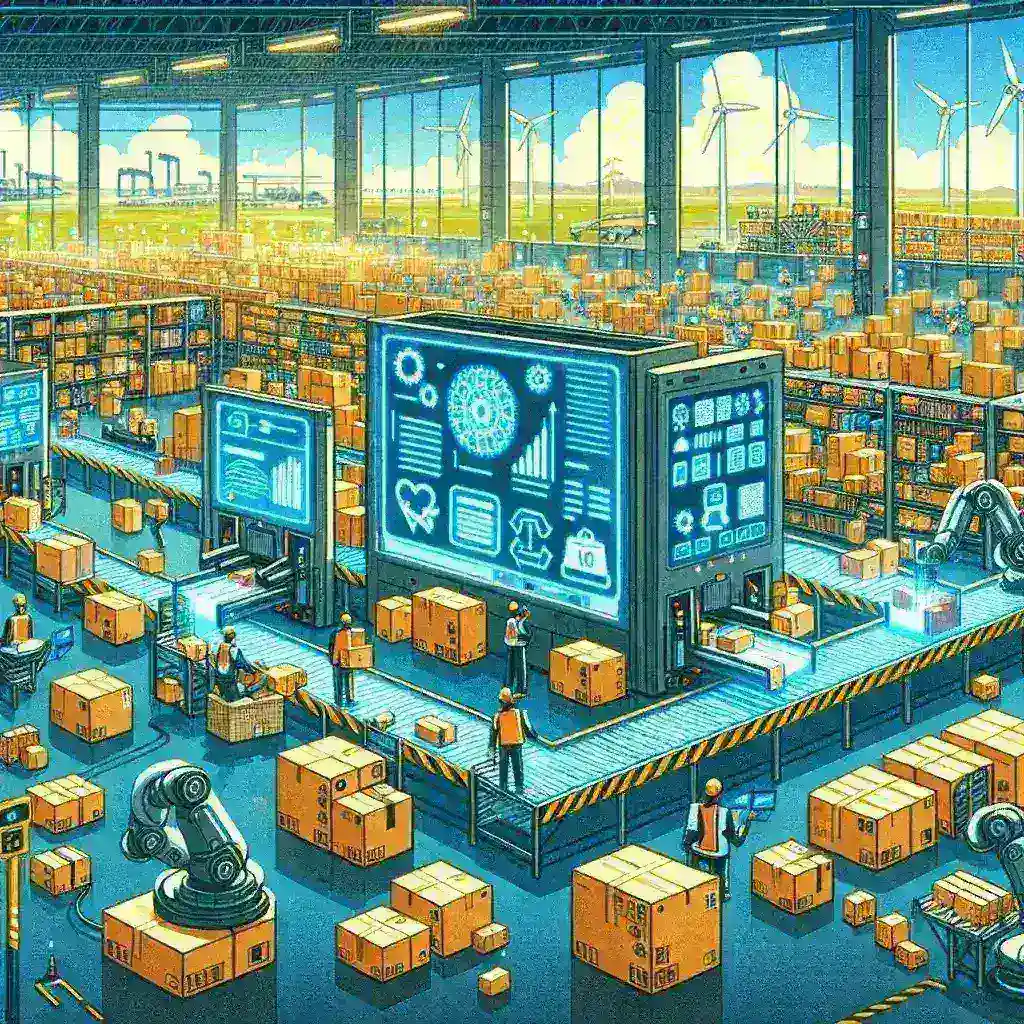Introduction
In a rapidly evolving logistics landscape, where sustainability and efficiency are paramount, UPS is taking bold steps to redefine packaging through innovative technology. The company is piloting an AI-powered recyclable packaging analysis system aimed at optimizing logistics operations across the United States. This initiative underscores UPS’s commitment to reducing environmental impact while enhancing operational efficiency.
The Need for Sustainable Packaging
The logistics sector is one of the most significant contributors to environmental pollution. Traditional packaging materials, often non-recyclable and harmful to the environment, are a major concern for companies striving to maintain eco-friendly practices. As consumers become increasingly aware of their carbon footprints, businesses are under pressure to adopt sustainable solutions.
Environmental Impact of Packaging Waste
According to the Environmental Protection Agency (EPA), packaging waste accounts for a significant portion of municipal solid waste. The need for smarter packaging solutions is critical, driving UPS to explore the potential of AI technologies to address these challenges.
Introducing AI-Powered Recyclable Packaging Analysis
The core of UPS’s initiative revolves around utilizing artificial intelligence to analyze packaging materials. This innovative approach not only assesses the recyclability of packaging but also identifies opportunities for improvement, ensuring that materials used in the logistics process are as sustainable as possible.
How AI Enhances Packaging Analysis
- Data-Driven Insights: AI algorithms analyze vast amounts of data, offering insights into which materials are most effective and sustainable.
- Predictive Analytics: By predicting future packaging trends, UPS can adapt quickly to changing consumer demands and regulatory requirements.
- Optimization of Resources: AI helps in optimizing resource allocation, ensuring that recyclable materials are prioritized in the packaging process.
Implementation of the Pilot Program
UPS’s pilot program is being rolled out in select locations across the U.S., targeting key distribution centers. The implementation process involves multiple stages:
1. Data Collection
Initial stages of the pilot program focus on collecting data related to current packaging practices and materials used. This data serves as a baseline for analysis.
2. AI Algorithm Development
Using the collected data, UPS collaborates with technology partners to develop tailored AI algorithms capable of assessing packaging materials for recyclability.
3. Testing and Evaluation
Once the algorithms are developed, they are tested in real-world scenarios, allowing UPS to evaluate the efficiency and effectiveness of the AI-powered analysis.
4. Iterative Improvements
Feedback from the testing phase leads to continuous improvements, ensuring that the technology evolves to meet the needs of the logistics industry.
Benefits of AI-Powered Packaging Analysis
The integration of AI technology into UPS’s packaging analysis offers numerous benefits:
- Enhanced Sustainability: By focusing on recyclable materials, UPS can significantly reduce its environmental footprint.
- Cost Efficiency: Optimizing packaging materials can lead to reduced costs associated with waste management and disposal.
- Improved Customer Satisfaction: Customers increasingly prefer eco-friendly options, and this initiative aligns with their values.
Challenges and Considerations
While the prospect of AI-powered recyclable packaging analysis is promising, there are inherent challenges that UPS must navigate:
1. Data Privacy and Security
As AI systems rely on vast amounts of data, ensuring the privacy and security of this data is crucial to building trust with stakeholders.
2. Change Management
Transitioning to new technologies requires a cultural shift within the organization. Training and educating employees about the benefits and uses of AI is vital.
3. Regulatory Compliance
UPS must remain compliant with environmental regulations, ensuring that their innovative approaches adhere to legal standards.
The Future of AI in Logistics
The pilot program is only the beginning. As UPS gathers insights and feedback, the potential applications of AI in logistics become increasingly promising:
1. Expanded Use Cases
Beyond packaging analysis, AI can be leveraged in route optimization, inventory management, and demand forecasting, enhancing overall operational efficiency.
2. Broader Sustainability Goals
UPS’s commitment to sustainability can extend beyond packaging. AI can contribute to green logistics strategies, reducing emissions and resource consumption.
3. Industry Leadership
By pioneering AI-powered solutions, UPS positions itself as a leader in sustainable logistics, setting an example for other companies to follow.
Conclusion
UPS’s piloting of AI-powered recyclable packaging analysis marks a significant step toward a more sustainable future in logistics. As the world increasingly prioritizes environmental responsibility, innovations like these will not only benefit the planet but also enhance the overall efficiency of supply chain operations. Through continuous improvement and adaptation, UPS is paving the way for a greener logistics industry, demonstrating that technology and sustainability can indeed go hand in hand.
Call to Action
As UPS embarks on this exciting journey, businesses and consumers alike can stay informed about the latest developments in sustainable logistics and explore how they can contribute to a greener future. Together, we can support initiatives that prioritize eco-friendly practices in the logistics industry.

